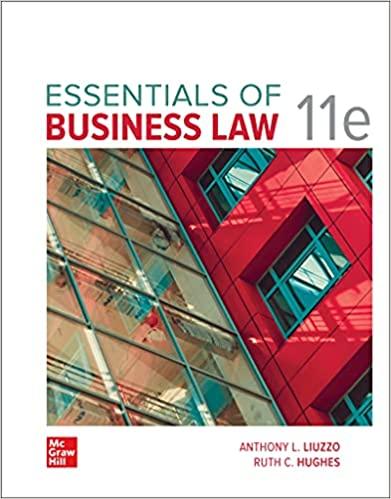Answered step by step
Verified Expert Solution
Question
1 Approved Answer
National courts interpret and apply International Business Law according to their own legal rules and case precedent. True False 1 points QUESTION 23 National attitudes
- National courts interpret and apply International Business Law according to their own legal rules and case precedent.
- True
- False
1 points
QUESTION 23
- National attitudes toward economics affect attitudes toward the law and regulation of International Business.
- True
- False
1 points
QUESTION 24
- Under the principle of nationality jurisdiction, a country has the right to hear cases stemming from crimes committed against its citizens in foreign nations.
- True
- False
1 points
QUESTION 25
- ADR is a good way to reduce costs of litigation and avoid a foreign war.
- True
- False
1 points
QUESTION 26
- A very desirable characteristic of ADR is the nonpublic proceeding which protects the privacy of the parties.
- True
- False
1 points
QUESTION 27
- In the U.S. an arbitration clause in a contract is usually honored as long as it meets due process requirements.
- True
- False
1 points
QUESTION 28
- Under U.S. commercial law cases, jurisdiction is recognized for in personam, in rem, subject matter and also nationality jurisdiction.
- True
- False
1 points
QUESTION 29
- For in rem jurisdiction, the minimum contacts analysis is the current preferred method for determination of the issues.
- True
- False
1 points
QUESTION 30
- The issue of venue is similar to the forum issue and therefore it is implied in a forum clause.
- True
- False
1 points
QUESTION 31
- The term "Conflict of Laws "refers to rules used by a court to determine jurisdiction, the rights and liabilities of the parties, and how to enforce a judgement.
- True
- False
1 points
QUESTION 32
- The Full Faith and Credit Clause of the Constitution does not apply to foreign nations, therefore courts apply state law.
- True
- False
1 points
QUESTION 33
- Foreign nations are immune from many types of lawsuits because they are sovereign nations, but an exception exists when a foreign nation acts in a commercial capacity.
- True
- False
1 points
QUESTION 34
- Cultural differences among nations makes international sales difficult to negotiate, as well as litigate.
- True
- False
1 points
QUESTION 35
- International customs is international law binding on all signatories of CISG.
- True
- False
1 points
QUESTION 36
- CISG is applicable whenever one party is a signatory.
- True
- False
1 points
QUESTION 37
- The process of making national sales law more uniform is referred to as unification of law.
- True
- False
1 points
QUESTION 38
- CISG, unlike common law countries, does not recognized the application of trade usage.
- True
- False
1 points
QUESTION 39
- A fundamental breach under CISG essentially means the non-breaching party to a contract has been denied the "benefit of the bargain".
- True
- False
1 points
QUESTION 40
- Just like any other int'l law, each nation adopts its own tariff schedule which it applies to the Harmonized Coding System.
- True
- False
Step by Step Solution
There are 3 Steps involved in it
Step: 1

Get Instant Access to Expert-Tailored Solutions
See step-by-step solutions with expert insights and AI powered tools for academic success
Step: 2

Step: 3

Ace Your Homework with AI
Get the answers you need in no time with our AI-driven, step-by-step assistance
Get Started


